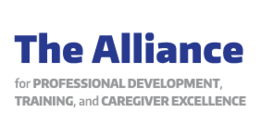In this course, you'll learn about childhood mental health, including common symptoms and screenings, assessment, effective interventions, and ways to engage children, caregiving adults, and professionals. Your role as a child welfare caseworker provides the lens through which these topics are explored, and you'll be asked to consider the barriers and experiences frequently encountered by children and families who are served by DCYF as we explore these topics. In part one, you will consider the connections between Trauma, Toxic Stress, and children's mental health problems. You'll learn more about the most common diagnoses in childhood, and how their symptoms might look different from behavior that's (broadly) developmentally typical. You'll learn a bit about the common screenings used to identify which children should be assessed for mental health treatment and about effective psychosocial interventions.
In part two, you'll focus more directly on your role as a caseworker within the child welfare system. You'll consider and practice ways to engage with adults in caregiving roles and the children they care for, in order to gather more information about their children's functioning, and to engage them in seeking and continuing treatment. Next, you'll learn about working with mental health professionals to understand their treatment approach and to assess whether the intervention is having a positive impact. This includes considerations for when to use, and how to monitor, psychotropic medication. Last, you'll consider the role of resilience, and ways to support resilience for the children and families you work with.
